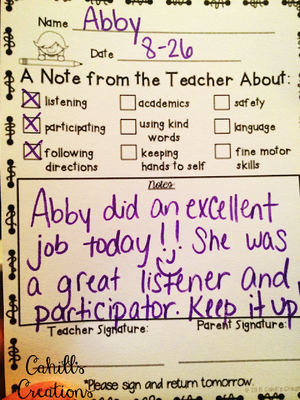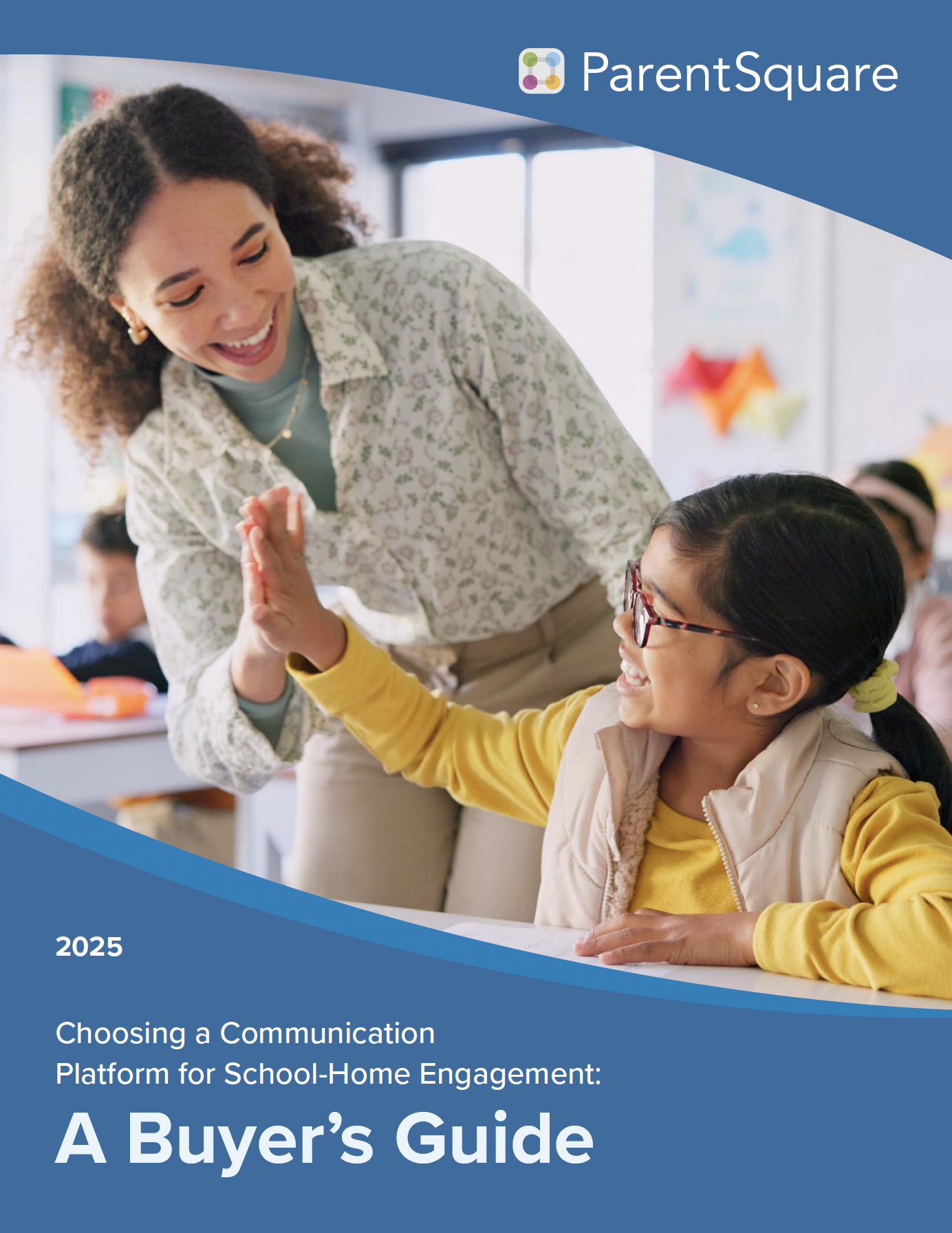
Parental engagement strategies can be complex and teachers don’t have much (if any!) spare time. Here’s a tip to help you make personal connections with parents — all it takes is a few minutes a day! The core concept: sending unexpected, positive messages home.
Surprise Them With Student Praise
Sending home positive messages can be a powerful tool for building rapport and a sense of partnership with parents. Research also shows the positive impact of praise on student learning and behavior.
What Does It Look Like?
First, let’s imagine you’re a parent. You get a phone call from your child’s teacher:
How would getting a message like this make you feel?! Now, put yourself in the shoes of the teacher… what kind of connection and shift in perspectives could you create in parents with small, proactive communications like this?
Here’s how you can put this into practice yourself.
Best Practices
1. Set the Stage for Good News
Oftentimes when parents get a call from school, their first thought is that there’s a problem with their student… so the first thing you want to do is establish that nothing is wrong! Try using the opening in the example above, which goes as follows:
2. Get Specific
Refer to something positive that their child did in class (or via Zoom) that you appreciate! Show that you notice their child and that you do really care. The parent is also likely to tell their child about the call, reinforcing the positive behavior your student showcased.
If you’re in a time crunch, here are some templates you can use and adapt! You can explore examples at the bottom of the page.
- Enthusiastic about learning [excitedly talking to a peer about how a caterpillar metamorphosizes into a butterfly]
- Considerate of others [bring over extra glue bottles for his classmates during art time]
- Polite [earnestly say thank you after I gave him a new pencil after his first one broke]
- Honest [admit that they didn’t do their homework]
- Caring [hug a distressed classmate]
- Focused [very honed in on the writing task and wasn’t distracted by their deskmate today]
- Hard-working [finish all of their math problems for both classwork AND homework]
- Patient [wait their turn to pick up their grammar packet]
- Lively [bring enthusiasm and energy to their group project]
- Organized [re-organize their binder — it’s looking very put together!]
- Were so focused on learning the material
- Helped their classmates
- Participated without being asked
- Brought so much positive energy to the classroom
- Were so helpful in our breakout sessions
- Brought so much enthusiasm and understanding to our game on Kahoot!
- Ask questions
- Work well in groups
- Be prepared
- Always have a smile
- Encourage others
- Stay focused on our work
- Be creative
- Bring new ideas and perspectives
- Expand our vocabulary (in a good way)
- Submitted on time
- Great quality
- Thoughtful and well written
- Complete with examples and shows their work
- Well organized and easy to read
- A joy to have in class
- The kind that makes me love teaching
- Someone I can’t imagine class without!
- A reminder of why I wanted to be a teacher… I get to work with wonderful students like them!
- An inspiration — they care so much about our class.

3. Praise Growth and Learning

Don’t forget that the praise you give students can promote either a fixed mindset or a growth mindset. Help support a growth mindset by praising effort and positive change!
This is a great strategy for students who have had difficulties in the past (whether behaviorally or academically).
Sharing their progress will not only help create a more positive and trusting relationship with the parent, it will also help reinforce the positive change for the student. Celebrating the little milestones can go a long way!
Examples:

4. Create a Small Daily Habit

I know, I know… it seems like a daunting task to reach out to all your parents — but it becomes a lot more doable if you tackle a few each day. Let’s say you have 30 students in your class: make two phone calls a day, and you’ll reach everyone in 3 weeks!
Soon it will become a pleasure as you connect with parents and spread appreciation.
5. Personal Calls or Texts Are Best
While phone calls are the most personal — assuming you speak the same language as your parents and they understand you — you can also direct message, text or email. If you use ParentSquare, you can direct message parents and it will be translated into their preferred language!
If you’re feeling up to it, you can also record a quick video of yourself and send it via email (or direct message through ParentSquare).
6. Keep Timing in Mind
Most mornings are very hectic for parents as they try to rally everyone for school and get ready for the day. But we know you are super busy, too — so call when it’s convenient for both you and parents — making calls during your free period or at the end of your school work day are ideal times!
7. What if They Don’t Answer?
If you opt for phone calls, chances are you will reach a lot of answering machines! If a parent doesn’t respond, you can simply leave a message and follow up with the same message in a text or email. Here’s an intro and outro of what you could say in a follow-up message:
[positive note]
I’m so glad to have [student name] in my class! Thank you and have a great rest of your day.”
There you have it! Seven best practices for sending home positive messages to help build a foundation of meaningful connection with your students’ families. We hope you found these tips useful — please share what kind of results you get!
Here Are Some Examples of Messages You Can Send Home:
This post originally appeared on our ParentSquare Learning Network blog on September 28, 2020.







